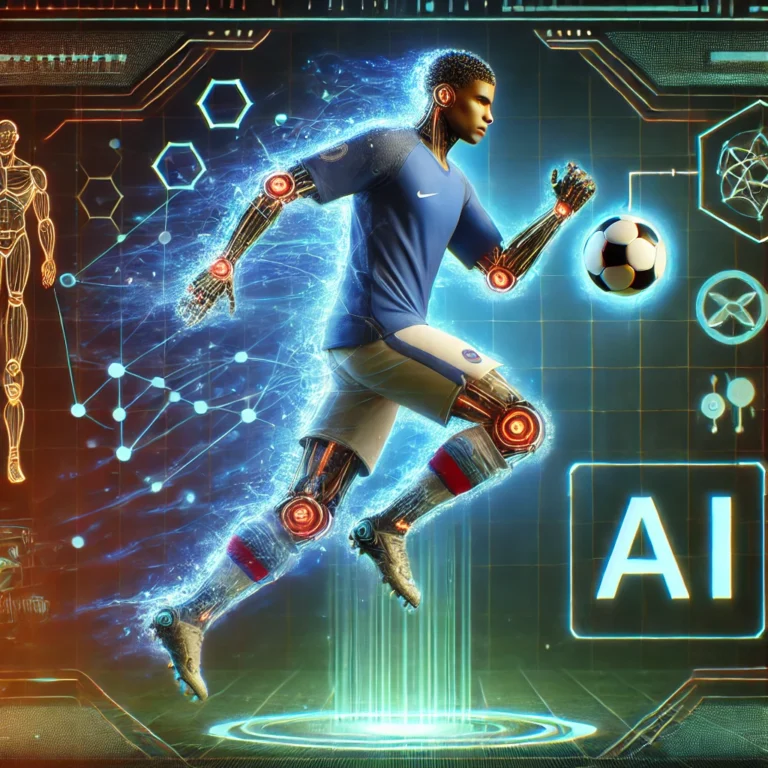Feature Image: A futuristic image showing AI algorithms, robots, and human interaction with technology.
Introduction: The Rise of New AI Technologies
In recent years, artificial intelligence (AI) has evolved at an unprecedented pace, ushering in a new era of technological innovation that is poised to reshape industries, economies, and everyday life. The rapid development of new AI technologies—ranging from machine learning (ML) and natural language processing (NLP) to autonomous systems and generative AI—has already had profound effects on a wide variety of sectors, including healthcare, finance, manufacturing, and entertainment.
As AI technologies continue to mature, their impact on global societies and economies is becoming more evident. This article explores the latest advancements in AI, the key benefits and challenges they present, and how they are transforming industries and shaping the future.
The Core Technologies Driving AI Innovation
AI is a broad field that encompasses various technologies. Some of the most impactful recent developments include:
1. Machine Learning (ML)
Machine learning, a subset of AI, enables systems to learn and improve from data without being explicitly programmed. ML algorithms can identify patterns, make predictions, and continuously improve their performance over time. This has led to advancements in various fields, from personalized marketing to predictive healthcare analytics.
2. Natural Language Processing (NLP)
NLP allows machines to understand, interpret, and generate human language. Recent innovations in NLP have led to significant improvements in chatbots, voice assistants like Amazon’s Alexa and Apple’s Siri, and even AI writing tools like OpenAI’s GPT models. This has drastically improved the human-computer interaction experience.
3. Computer Vision
Computer vision allows machines to interpret and understand visual data from the world, enabling autonomous vehicles, facial recognition systems, and advanced image editing tools. With applications in healthcare (e.g., detecting tumors from X-rays) and security (e.g., surveillance systems), computer vision is becoming a critical part of the AI landscape.
4. Generative AI
Generative AI models, such as OpenAI’s GPT and DALL·E, can create original content like text, images, music, and videos based on input data. This technology has revolutionized fields such as content creation, advertising, and design by enabling faster, more personalized, and cost-effective production.
5. Autonomous Systems
Autonomous systems, including self-driving cars, drones, and robotic process automation (RPA), use AI to perform tasks independently, without human intervention. These systems are transforming industries such as transportation, logistics, and manufacturing, creating new opportunities for efficiency and cost reduction.
Key Industries Impacted by AI Technology
1. Healthcare
AI has the potential to revolutionize healthcare by improving diagnosis accuracy, personalizing treatments, and streamlining administrative processes. AI algorithms can analyze medical data, such as images and patient records, to identify diseases early, which can save lives and reduce healthcare costs. For instance, AI-powered tools can detect cancer in its early stages, potentially leading to better patient outcomes.
Moreover, AI is playing a crucial role in drug discovery by simulating how different compounds interact with the body. Pharmaceutical companies are leveraging AI models to predict the effectiveness of new drugs and reduce the time and cost required to bring them to market.
2. Finance
In the finance industry, AI is being used for algorithmic trading, fraud detection, risk management, and customer service. AI systems can analyze vast amounts of financial data in real-time, allowing traders to make faster and more informed decisions. In addition, AI-powered chatbots and virtual assistants are providing personalized banking experiences to customers.
AI-driven fraud detection systems can also spot unusual transactions, reducing the risk of financial fraud. By leveraging machine learning algorithms, banks can improve their security measures and safeguard customer data.
3. Manufacturing
AI is revolutionizing manufacturing by enabling smart factories, predictive maintenance, and automation of production lines. Robotics and AI-driven automation are reducing the need for human labor in repetitive tasks, increasing efficiency, and lowering production costs.
Predictive maintenance, powered by AI, allows manufacturers to monitor equipment and predict failures before they occur, minimizing downtime and optimizing resource use. This is particularly important in industries like automotive, electronics, and heavy machinery manufacturing, where equipment failure can lead to significant production delays.
4. Retail and E-commerce
The retail and e-commerce sectors are being transformed by AI technologies that enhance customer experiences and improve operational efficiency. Personalized recommendations, powered by machine learning algorithms, enable businesses to suggest products based on individual preferences and browsing behavior, driving sales and customer loyalty.
AI-driven inventory management systems optimize stock levels by predicting demand patterns, reducing waste, and ensuring that products are available when customers need them. Moreover, AI-powered chatbots and virtual assistants offer round-the-clock customer support, providing immediate answers to queries and improving customer satisfaction.
5. Transportation and Logistics
Autonomous vehicles and drones are revolutionizing the transportation and logistics sectors. Self-driving trucks and drones are being developed to transport goods more efficiently, reducing transportation costs and delivery times. AI technologies also play a role in optimizing traffic flow in urban areas, helping reduce congestion and improve overall transportation efficiency.
In logistics, AI-powered supply chain management systems can predict demand, optimize routes, and improve delivery accuracy, helping businesses meet customer expectations while reducing operational costs.
Benefits and Opportunities of AI Technology
AI brings numerous benefits to the world, including:
Efficiency and Productivity: Automation of repetitive tasks frees up human workers to focus on more strategic and creative activities, enhancing overall productivity.
Cost Reduction: AI technologies help businesses reduce operational costs through automation, predictive analytics, and optimized resource allocation.
Innovation and Creativity: AI enables the development of new products, services, and solutions, driving innovation across industries.
Improved Decision Making: AI’s ability to process large amounts of data and provide actionable insights helps businesses and governments make informed decisions faster.
Challenges and Ethical Considerations
Despite the vast potential of AI, there are several challenges that need to be addressed:
Job Displacement: Automation driven by AI may lead to job displacement, particularly in sectors reliant on routine tasks. However, AI is also creating new job opportunities in tech and data science fields.
Bias and Fairness: AI algorithms can perpetuate bias if they are trained on biased data. Ensuring fairness and transparency in AI systems is critical to avoid reinforcing existing inequalities.
Privacy Concerns: As AI systems collect and analyze vast amounts of personal data, concerns about data privacy and security become more pressing. Companies and governments must implement strong data protection measures to safeguard individuals’ privacy.
Regulation and Governance: The rapid advancement of AI technology outpaces current regulatory frameworks. Governments and international bodies must collaborate to establish regulations that ensure AI development is ethical, transparent, and accountable.
Conclusion: A Future Shaped by AI
AI technologies are poised to transform every aspect of our lives, from the way we work and interact with machines to how industries operate and grow. While there are challenges to overcome—such as ensuring fairness, protecting privacy, and mitigating job displacement—the opportunities presented by AI are vast and promising.
As we move forward, it is crucial that policymakers, businesses, and technologists work together to ensure AI is developed and deployed in a way that benefits society at large. With the right balance of innovation, regulation, and ethical considerations, AI has the potential to make the world more efficient, inclusive, and connected than ever before.









